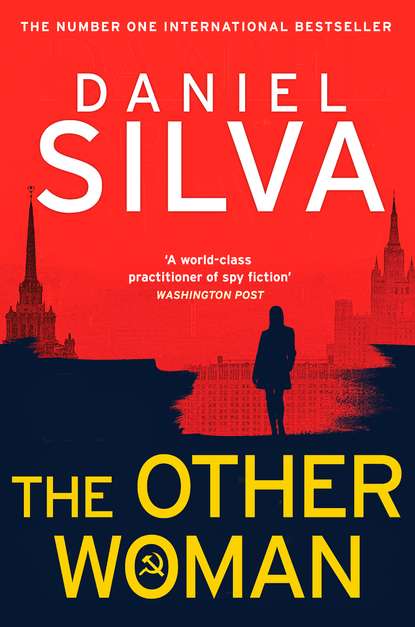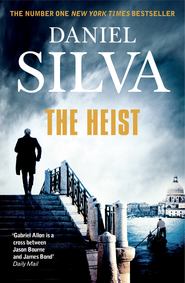По всем вопросам обращайтесь на: info@litportal.ru
(©) 2003-2024.
✖
The Other Woman
Автор
Год написания книги
2019
Настройки чтения
Размер шрифта
Высота строк
Поля
“Have you forgotten that he and Alistair know each other?”
“No,” replied Gabriel, “that important fact has not suddenly slipped my mind. But don’t worry, we won’t let them within a mile of each other.”
“Not a word to the Americans,” demanded Seymour.
Gabriel raised his right hand, as though swearing a solemn oath.
“And no access whatsoever to any MI6 files or the inner workings of Vienna station,” Seymour insisted. “Your operation will be limited to physical surveillance only.”
“But his apartment is fair game,” countered Gabriel. “Eyes and ears.”
Seymour made a show of deliberation. “Agreed,” he said finally. “But do try to show a little discretion with your cameras and microphones. A man is entitled to a zone of immunity.”
“Unless he’s spying for the Russians. Then he’s entitled to vysshaya mera.”
“Is that Hebrew?”
“Russian, actually.”
“What does it mean?”
Gabriel punched the eight-digit numerical code into the internal keypad, and the locks opened with a snap.
Seymour frowned. “I’ll have that changed first thing in the morning.”
“Do,” said Gabriel.
Seymour was distracted during dinner, and so it fell to Helen, the perfect service wife, to guide the conversation. She did so with admirable discretion. Gabriel was no stranger to the London press, yet never once did she raise the unpleasant topic of his past exploits on British soil. Only later, as he was preparing to take his leave, did he realize they had spoken of nothing at all.
He had hoped to walk back to his hotel, but a Jaguar limousine waited curbside. Christopher Keller was sitting in the backseat, reading something on his MI6 BlackBerry. “I’d get in if I were you,” he said. “A good friend of the Tsar lives on the other side of the square.”
Gabriel ducked into the car and closed the door. The limousine moved away from the curb with a lurch and a moment later was speeding along the King’s Road through Chelsea.
“How was dinner?” asked Keller warily.
“Almost as bad as Vienna.”
“I hear we’re going back.”
“Not me.”
“Too bad.” Keller stared out the window. “I know how much you love the place.”
15 (#ulink_6a4fc0d7-5f82-5178-b58c-d46329130612)
BRITISH EMBASSY, WASHINGTON (#ulink_6a4fc0d7-5f82-5178-b58c-d46329130612)
The director-general of Her Majesty’s Secret Intelligence Service had no private aircraft of his own—only the prime minister had such a perquisite—and so Graham Seymour crossed the Atlantic the next morning aboard a chartered Falcon executive jet. He was met on the tarmac at Dulles International Airport by a CIA reception team and driven at high speed through the sprawl of suburban Northern Virginia, to the British Embassy compound on Massachusetts Avenue. Upon arrival, he was shown upstairs for the obligatory meeting with the ambassador, a man he had known nearly all his life. Their fathers had served together in Beirut in the early 1960s. The ambassador’s father had worked for the Foreign Office, Seymour’s for MI6.
“Dinner tonight?” asked the ambassador as he showed Seymour to the door.
“Back to London, I’m afraid.”
“Pity.”
“Quite.”
Seymour’s next stop was the MI6 station, which lay behind a bank vault of a door, a secret kingdom, separate and apart from the rest of the embassy. It was MI6’s largest station by far, and without question its most important. By standing agreement, its officers made no attempt to collect intelligence on American soil. They served merely as liaisons to the sprawling U.S. intelligence community, where they were regarded as valued customers. MI6 had helped to build America’s espionage capability during World War II, and now, decades later, it was still reaping the rewards. The close familial relationship allowed the United Kingdom, a hollowed-out former imperial power with a small military, to play an outsize role on the world stage, and thus maintain the illusion it was a global power to be reckoned with.
Rebecca Manning, the Washington Head of Station, was waiting for Seymour on the other side of the security barrier. She had been beautiful once—far too beautiful to be an intelligence officer, in the opinion of one long-forgotten service recruiter—but now, in the prime of her professional life, she was merely formidably attractive. A stray lock of dark hair fell over a cobalt-blue eye. She moved it aside with one hand and extended the other toward Seymour. “Welcome to Washington,” she intoned, as though the city and all it represented were hers exclusively. “I trust the flight wasn’t too terrible.”
“It gave me a chance to read your briefing materials.”
“There are one or two more points I’d like to review before we leave for Langley. There’s coffee in the conference room.”
She released her grip on Seymour’s hand and led him along the station’s central corridor. Her stylish jacket and skirt smelled faintly of tobacco; she had no doubt stepped into the garden for a quick L&B before Seymour’s arrival. Rebecca Manning was an unrepentant and wholly unapologetic smoker. She had acquired the habit at Cambridge, and it had worsened considerably during a posting in Baghdad. She had also served in Brussels, Paris, Cairo, Riyadh, and Amman, where she had been the Head of Station. It was Seymour, early in his tenure as chief, who had given her the job as H/Washington, as it was known in the lexicon of the service. In doing so, he had virtually anointed her as his successor. Washington would be Rebecca’s final overseas station; there was nowhere else for her to go. Nowhere but a final lap at Vauxhall Cross so that she might be formally introduced to the barons of Whitehall. Her appointment would be historic, and long overdue. MI5 had already had two female chiefs—including Amanda Wallace, the current director-general—but Six had never entrusted the reins of power to a woman. It was a legacy Seymour would be proud to leave.
Family ties aside, Washington Station observed the same security procedures as any other post in the world, especially when it came to sensitive conversations between senior officers. The conference room was impervious to electronic eavesdropping. A leather-bound briefing book had been left at Seymour’s place at the table. Inside was the agenda for the meeting with CIA director Morris Payne, along with summaries of current policies, future goals, and ongoing operations. It was one of the most valuable documents in the world of global intelligence. Moscow Center would surely have killed for it.
“Cream?” asked Rebecca Manning.
“Black.”
“That’s not like you.”
“Doctor’s orders.”
“Nothing serious, I trust.”
“My cholesterol is a bit too high. So is my blood pressure. It’s one of the fringe benefits of the job.”
“I gave up worrying about my health a long time ago. If I can survive Baghdad, I can survive anything.” She handed Seymour his coffee. Then she prepared one for herself and frowned. “Coffee without a fag. What’s the point?”
“You really should quit, you know. If I can do it, anyone can.”
“Morris tells me the same thing.”
“I didn’t realize you were on a Christian-name basis.”
“He’s not so bad, Graham.”
“He’s ideological, which makes me nervous. A spy should believe in nothing.” He paused, then added, “Like you, Rebecca.”
“Morris Payne isn’t a spy, he’s the director of the Central Intelligence Agency. There’s an enormous difference.” She opened her copy of the briefing book. “Shall we begin?”
Seymour had never doubted the wisdom of Rebecca Manning’s appointment to Washington, never less so than in the forty-five minutes of her briefing. She moved through the agenda swiftly and sure-footedly—North Korea, China, Iran, Iraq, Afghanistan, Syria, the global effort against ISIS and al-Qaeda. Her command of the policy issues was complete, as was her exposure to American covert operations. As MI6’s Head of Station in Washington, Rebecca Manning knew far more about the secret workings of the American intelligence community than most members of the Senate. Her thinking was subtle and sophisticated, and not given to hyperbole or rashness. For Rebecca, the world was not a dangerous place spinning rapidly out of control; it was a problem to be managed by men and women of competence and training.
The last item on the agenda was Russia. It was inherently treacherous ground. The new American president had made no secret of his admiration for Russia’s authoritarian leader and expressed a desire for better relations with Moscow. Now he was embroiled in an investigation into whether the Kremlin had provided covert assistance that helped him prevail in a close election against his Democratic opponent. Seymour and MI6 had concluded it was so, as had Morris Payne’s predecessor at the Central Intelligence Agency.











